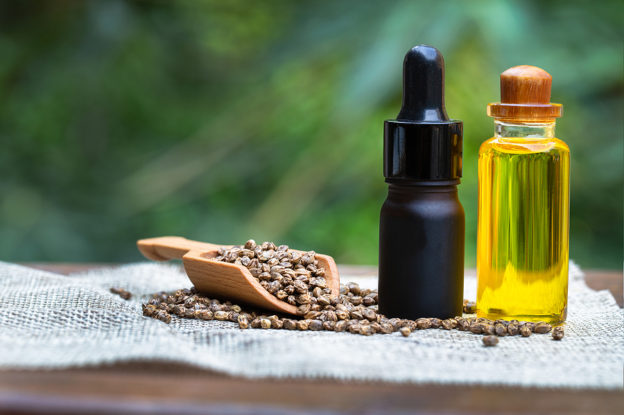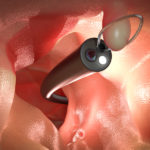By David Blyweiss, M.D., Advanced Natural Wellness
October 5, 2020
This year sure has been one for the books!
I’m feeling it on my end too. Despite all the hardship, I’ve been working hard on a few new projects. And I’m getting excited about some newer treatments that are starting to gain popularity.
One of the most interesting new treatments I get asked about is cannabidiol (CBD oil). For the longest time, hemp-derived CBD was grouped together with medical marijuana. It was illegal in most places and taboo to talk about.
But things are changing and more people are becoming interested in the wide variety of health benefits it can provide. Best of all, ever since December 2018, CBD products are legal in all 50 states!
Today, I’d like to talk to you about the brain benefits of these products. CBD oils may be a great addition to your routine to help protect against neurodegenerative diseases like Alzheimer’s and Parkinson’s.
Bring Your Body and Mind Back into Balance
First off, let’s clear something up…
CBD is not the same thing as medical marijuana. Yes, they both come from the Cannabis Sativa plant. This is a plant that has been used by cultures around the world for centuries.
MD Exposes the Hidden Danger to Your Eyes

When your eyesight starts to fail, it's a real problem. Suddenly you can't go to the grocery store... you can't get to the doctor if you have an emergency... you can't meet your friends for dinner…
Your "regular" doctor doesn't have time to keep up with the latest research. And the same goes for eye doctors. They go to school to learn how to fit you for glasses and contacts, but have no way of preventing the damage and loss of eyesight that threatens your freedom and independence.
Let me show you something that explains a LOT about how your eyes work.
In my FREE Special Report, I'll show you a HUGE, untapped resource for your eyes that safely and naturally restores clear, effortless eyesight.
Click here to get started...
So far, more than 400 chemical compounds have been pulled from the Cannabis sativa plant. CBD is just one of those chemicals. But, unlike the THC in medical marijuana, CBD does not cause psychotic effects. [1]
Instead, it can be a powerful protector for your brain health. Researchers have been studying how it benefits your nervous system.
One of the main reasons why we have brain diseases is because of oxidative stresses. They play a crucial role in the aging process. When free radicals attack brain cells it leads to neurodegenerative diseases like Alzheimer’s and Parkinson’s. [2]
(That’s why I’m always encouraging you to eat foods filled with antioxidants. Blueberries are my favorite!)
CBD also helps with a part of your brain called the endocannabinoid system. [3] The endocannabinoid system helps regulate and balance many processes throughout your body. For instance, it helps balance the immune system, appetite, metabolism, and memory.
CBD interacts with the endocannabinoid system to help with things like mood disorders, anxiety, and neurodegenerative disorders.
In fact, CBD was observed to cause the growth and development of nervous tissue inside the brain.[4] This is good news for people concerned about dementia.
It can help protect against Alzheimer’s[5] and ward off problems from Parkinson’s disease.[6]
Since it changes how the brain reacts to stress, CBD can be a powerful tool to reduce feelings of anxiety and stress. This helps people who are dealing with panicked emotions associated with anxiety disorders, [7] panic disorders, obsessive-compulsive disorders or even PTSD.
It has also been widely applauded as a treatment for people who suffer from seizures due to epilepsy. [8] There is a drug available from Big Pharma, called Epidiolex, which was released in July 2018 for this exact purpose.
Finally, CBD has shown a lot of promise as a treatment for people who are suffering from multiple sclerosis. [9] It can help relieve the chronic pain associated with this disease.[10]
Are You Suffering From...
- Love handles and a pot belly
- Romance that isn't what it used to
- Forgetfulness and inattention
- Low (or no) strength and endurance
- A sex drive that's shifted into neutral...or worse
If so...you may have Mature Male Burnout. Click here to discover more about this unique condition and what you can do about it.
Overall, the high antioxidant and anti-inflammatory properties make this a winner in my book. It has excellent safety results in clinical studies.
There’s a Right Way and a Wrong Way to Try These Products
If you’re looking for a product to add CBD to your routine, I have a few pieces of advice.
First off, be careful where you get your products. It’s a bit of a Wild West out there when it comes to your options.
You’ll see things like CBD ice cream, gummies, and lollipops flooding the market. Really, it’s just a lot of creative marketing and not worth your time or money.
You should also stay away from the synthetic versions of CBD. They come along with a host of nasty side effects which you don’t want to mess with. They can negatively affect your mental state, cause psychosis, and even cause your kidneys to shut down.[11]
Instead, look in your pharmacy for CBD oil that can be dropped under your tongue. You want to get something that has 1,000 milligrams per bottle and each bottle has 30 milliliters. That way, one full milliliter has at least 30-33 milligrams of CBD. That’s a low, normal amount to try.
There are also some products out there that are 100% USDA organic hemp in the form of a cigarette with organic filter paper. It’s free of the chemicals that make normal tobacco cigarettes so bad for you.
Creams are another option as they allow the CBD to absorb directly into your skin.
Sources:
[1] Ligresti, A., De Petrocellis, L., and Di Marzo, V. (2016). From phytocannabinoids to cannabinoid receptors and endocannabinoids: pleiotropic physiological and pathological roles through complex pharmacology. Physiol. Rev. 96, 1593–1659. doi: 10.1152/physrev.00002.2016
[2] Cassano, Tommaso et al. “From Cannabis sativa to Cannabidiol: Promising Therapeutic Candidate for the Treatment of Neurodegenerative Diseases.” Frontiers in pharmacology vol. 11 124. 6 Mar. 2020, doi:10.3389/fphar.2020.00124
[3] Luján Miguel Á., Valverde Olga (2020), The Pro-neurogenic Effects of Cannabidiol and Its Potential Therapeutic Implications in Psychiatric Disorders, Frontiers in Behavioral Neuroscience, 14:109. Doi: 10.3389/fnbeh.2020.00109, Available Online: https://www.frontiersin.org/article/10.3389/fnbeh.2020.00109
[4] Esposito, G., Scuderi, C., Valenza, M., Togna, G. I., Latina, V., De Filippis, D., et al. (2011). Cannabidiol reduces Aβ-induced neuroinflammation and promotes hippocampal neurogenesis through PPARγ involvement. PLoS One 6:e28668. doi: 10.1371/journal.pone.0028668
[5] Hayakawa, K., Mishima, K., Nozako, M., Hazekawa, M., Irie, K., Fujioka, M., Orito, K., Abe, K., Hasebe, N., Egashira, N., Iwasaki, K. and Fujiwara, M. (2007), Delayed treatment with cannabidiol has a cerebroprotective action via a cannabinoid receptor‐independent myeloperoxidase‐inhibiting mechanism. Journal of Neurochemistry, 102: 1488-1496. doi:10.1111/j.1471-4159.2007.04565.x
[6] Isabel Lastres-Becker, Francisco Molina-Holgado, José A. Ramos, Raphael Mechoulam, Javier Fernández-Ruiz,
Cannabinoids provide neuroprotection against 6-hydroxydopamine toxicity in vivo and in vitro: Relevance to Parkinson’s disease,Neurobiology of Disease,Volume 19, Issues 1–2,2005,Pages 96-107,ISSN 0969-9961,
[7] Fogaça, M. V., Campos, A. C., Coelho, L. D., Duman, R. S., and Guimarães, F. S. (2018). The anxiolytic effects of cannabidiol in chronically stressed mice are mediated by the endocannabinoid system: role of neurogenesis and dendritic remodeling. Neuropharmacology 135, 22–33. doi: 10.1016/j.neuropharm.2018.03.001
[8] Pellati F., Borgonetti V., Brighenti V., Biagi M., Benvenuti S., Corsi L. (2018). Cannabis sativa L. and Nonpsychoactive Cannabinoids: Their Chemistry and Role against Oxidative Stress, Inflammation, and Cancer. BioMed. Res. Int. 2018, 1691428. 10.1155/2018/1691428
[9] Rog DJ, et al. Randomized, controlled trial of cannabis-based medicine in central pain in multiple sclerosis. Neurology. 2005 Sep 27;65(6):812-9.
[10] Rog DJ, et al. Randomized, controlled trial of cannabis-based medicine in central pain in multiple sclerosis. Neurology. 2005 Sep 27;65(6):812-9.
[11] Cohen K, et al. Synthetic and Non-synthetic Cannabinoid Drugs and Their Adverse Effects-A Review From Public Health Prospective. Front Public Health. 2018; 6: 162.






